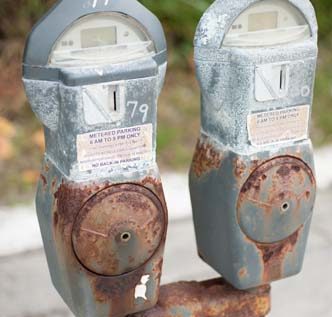
Rebecca Bell is a waitress, so she always has plenty of change for parking meters at the beach in Indialantic. Her husband, Mike, says they often put too much money in the meter.
“I do that all the time,” Mike Bell said as they came off the beach last week.
That overpayment could go away if Indialantic replaces its traditional meters with automated kiosks that accept credit and debit card payments.
“That would be a better option,” Mike Bell said.
Council discussed the issue at the July 17 meeting. “The world has changed,” Deputy Mayor Stuart Glass said, a reference to the growth of kiosk systems over meters throughout the country.
Town Manager Chris Chinault expects to look at Cocoa Beach as a model for Indialantic in terms of the positives and the negatives. “I’m now going to explore the system that Cocoa Beach has initiated to determine if it fits our needs and is cost effective for us.“
The issue for Indialantic, Chinault said, has more to do with convenience than the outlay for meter repairs, despite the heavy corrosion from the salt air.
“The cost to maintain meters is covered by permit and meter revenue and is not burdensome,” he said. “I believe that we spend about $15,500 per year for meter repair and replacement. We don’t replace meters. We replace parts. We might buy a yoke, meter housing, the coin mechanism, the pole to hold up the meter, or the shield should it become clouded and difficult to read.”
The revenue side, allocated to the Enterprise Fund in the budget, comes from Nance, Sunrise, Indialantic Ocean Beach and Sea parks, as well as the 6th Avenue parking lot.
Meter revenue budgeted for the current fiscal year is anticipated to be $254,851 with a proposed increase in the next fiscal year to $257,000. The town budgeted $16,732 for permit fees in fiscal year 2017 and $18,700 for fiscal year 2018. For the current year, parking fines expect to amount to $66,730 and go up to $68,030 in the next fiscal year.
Cocoa Beach began evaluating and field testing various types and brands of kiosks in 2014. The commission approved the selected system in January, 2016 and installation began last September, one street at a time. Charles Holland Jr., assistant city manager, said each space had to be striped and numbered and signage put in place. Holland says with the latest replacement, no parking meters remain.
“Our most recent change over was in February of this year in Shepard Park at the end of Route 520. The park has over 300 spaces and we now have 10 kiosks to assist our guests with paying for their parking,” he said.
Kiosks are located so that the pedestrian flow passes them after a car is parked. Typically one kiosk will serve one stub-end street for beachgoers.
Kiosks accept credit and debit cards, but still take coins. However, paper money is not accepted. “You put in the space number and follow instructions on the kiosk. You can also use a cellphone to pay,” Holland said.
Placement of 60 kiosks, covering 1,300 parking spaces, cost the town about $300,000 or $231 a space.
“Using parking meters capable of taking debit or credit cards would cost more on a per space basis,” he said.
According to Holland, the kiosks are still under warranty so there have been no maintenance costs as of yet. But meter maintenance was another story. The 2004 hurricanes had driven sand into the mechanisms of the meters, and they began malfunctioning on a steady basis since then with maintenance expenditures peaking in fiscal year 2014 at $10,871. The real problem was that parts had become unavailable due to the age of meters. “We were shutting lesser used streets down to strip parts from meters for higher volume areas,” Holland said.
It’s too early to tell whether kiosks cut down on the number of parking tickets. “As a part of our overall plan, we went to a cloud-based enforcement system. Since it is more efficient than the system it replaced, it appears that the number of citations has not fallen, in part because the officers can cover more ground because new system is less cumbersome,” he said.



